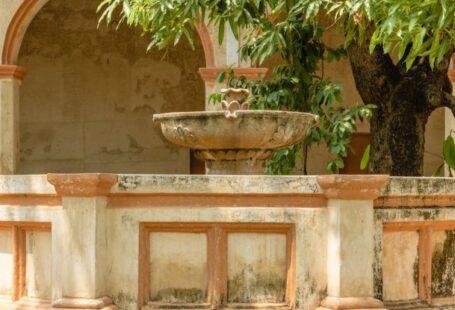The Flower Festival in Rome: A Vibrant Celebration of Culture and Tradition
Rome, the eternal city, is renowned for its rich history, stunning architecture, and vibrant cultural scene. Among the myriad of events that grace the social calendar of Rome, the Flower Festival stands out as a colorful and lively celebration that captures the essence of the city’s spirit. This annual event, held in early June, brings together locals and tourists alike to revel in the beauty of flowers and embrace the traditions that have been passed down through generations. Let’s delve deeper into the significance of the Flower Festival in Rome’s social calendar.
A Celebration of Nature’s Beauty and Fragrance
The Flower Festival in Rome is a celebration of nature’s beauty and fragrance, as the city bursts into a riot of colors with streets adorned with vibrant floral displays. From roses to lilies, the festival showcases a wide array of flowers that are meticulously arranged to create stunning visuals that captivate the senses. The intoxicating fragrance of the blooms fills the air, creating a sensory experience that is truly unforgettable. The festival not only highlights the aesthetic appeal of flowers but also serves as a reminder of the importance of nature in our lives.
A Cultural Extravaganza
The Flower Festival is not just about flowers; it is a cultural extravaganza that brings together various aspects of Rome’s heritage. Traditional music fills the streets, as local musicians serenade the crowds with melodious tunes that add to the festive atmosphere. Artisans display their skills, creating intricate floral arrangements that showcase the artistry and craftsmanship that are synonymous with Rome. The festival also features dance performances, theater shows, and art exhibitions that offer a glimpse into the rich cultural tapestry of the city.
A Social Gathering
The Flower Festival serves as a social gathering where people from all walks of life come together to celebrate and connect. Families stroll along the flower-lined streets, children marveling at the colorful displays, while friends gather to enjoy the festivities and create lasting memories. The festival provides a space for people to interact, share stories, and forge new friendships, fostering a sense of community and camaraderie that is essential in today’s fast-paced world.
A Culinary Delight
No celebration in Rome is complete without indulging in the culinary delights that the city has to offer, and the Flower Festival is no exception. Food stalls line the streets, offering a delectable array of traditional Italian dishes and street food favorites that tantalize the taste buds. From freshly baked pizzas to creamy gelato, the festival is a paradise for food lovers, providing an opportunity to savor the flavors of Rome in a vibrant and festive setting.
Embracing Tradition in a Modern World
In a rapidly changing world, where traditions are often overlooked in favor of modernity, the Flower Festival in Rome serves as a beacon of tradition that reminds us of the importance of honoring our roots. The festival preserves age-old customs and rituals, such as the blessing of flowers in local churches and the procession of floral floats through the streets, keeping alive the heritage that has defined Rome for centuries. By embracing tradition in a modern world, the Flower Festival reinforces the cultural identity of the city and pays homage to its rich history.
In Conclusion: A Timeless Celebration of Beauty and Tradition
The Flower Festival in Rome holds a special place in the hearts of locals and visitors alike, serving as a timeless celebration of beauty and tradition. From the vibrant floral displays to the cultural performances, the festival encapsulates the essence of Rome’s spirit and offers a glimpse into the city’s rich heritage. As we meander through the flower-lined streets, surrounded by the sights, sounds, and scents of the festival, we are reminded of the enduring power of nature, culture, and community in shaping our lives and connecting us to our past, present, and future.





